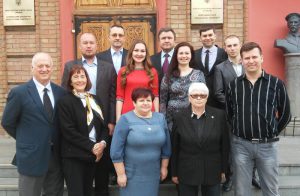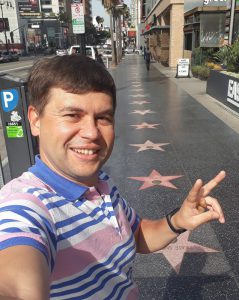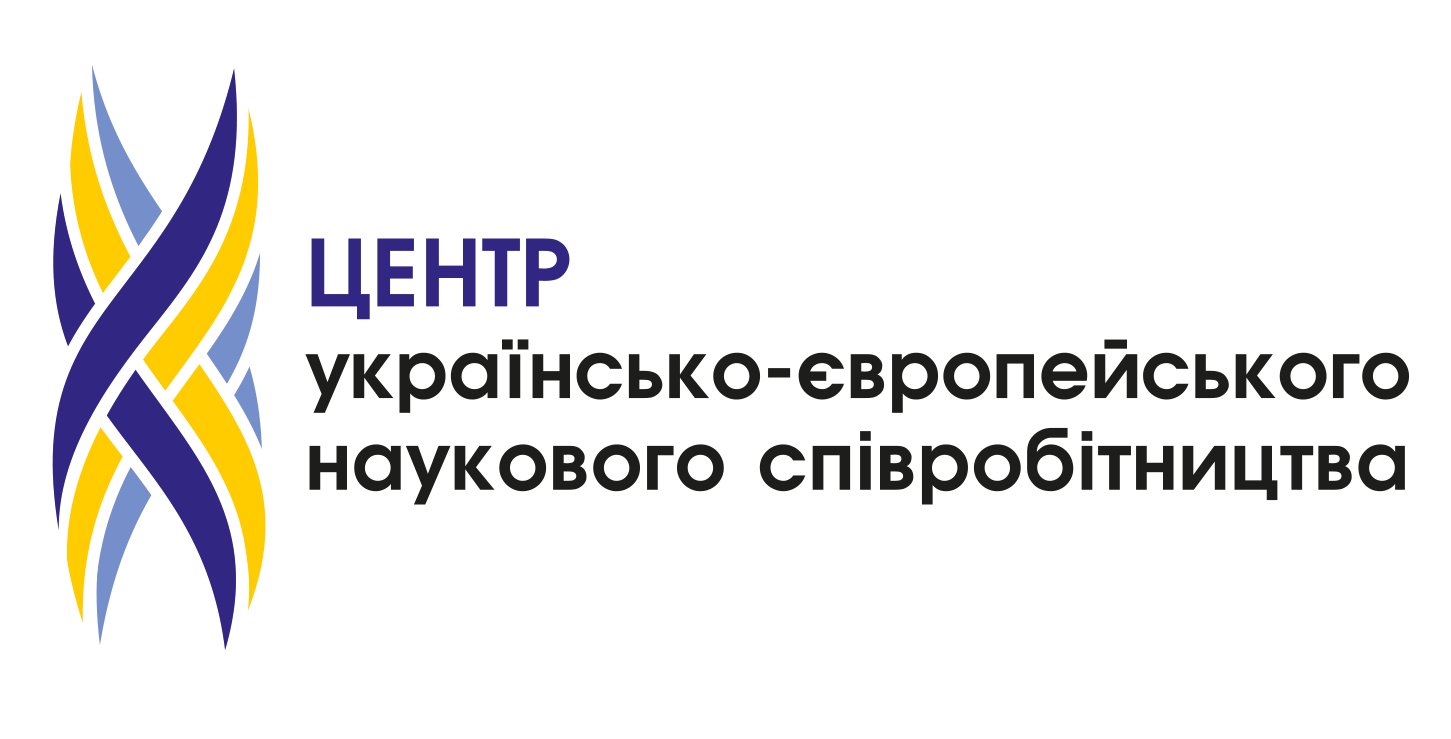
Dmytro Vasylovych Kamenskyi was born on April 14, 1983, in Tbilisi (Georgia). In 2004, he graduated from Zaporizhzhya University of Humanities with first class honours degree in Law. In 2004–2008 – Assistant Lecturer at the Department of Criminal Law of Azov Regional Institute of Management. Since 2007– Coordinator of the Center for International Legal Studies (Salzburg, Austria) in Ukraine. In 2009, he graduated from the Faculty of Law of Georgetown University (Washington, D.C., United States) obtained LLM in Tax Law
In 2009–2011 – Senior Instructor at the Department of Branch Legal Disciplines of Azov Regional Institute of Management of Zaporizhzhya Technical University. In 2009–2014 – Scientific Associate at the Research Laboratory of Topical Problems of Criminal Legislation of Ukraine and Criminal-Sociological Studies of Luhansk State University of Internal Affairs named after E.O. Didorenko.
In 2010, he defended his PhD thesis in the Academy of Advocacy of Ukraine (Kyiv) and obtained PhD in Law. In 2013, Dmytro Kamenskyi obtained Master’s Diploma in Administrative Management in Classic Private University (Zaporizhzhia).
In 2014, he obtained the academic rank of Associate Professor. Since 2014 – Head of the Department of Jurisprudence of Berdyansk State Pedagogical University.
– Dmytre Vasylovychu, you were born in Tbilisi. How did you come to be in Berdiansk?
– My family and I moved into Berdiansk in 1993 when I turned 9. My father was a military servant, and when the USSR fell apart, parents decided to leave Georgia for our personal security. Our close relatives on the maternal side lived in Berdiansk.
– Have you always wanted to be a lawyer?
– When I was a schoolboy, I wished to be an economist and manage my own business. But parents hinted me at possible complications with counting, calculations, formulas I could face during the entrance and further training due to my humanities set of mind. Thus, I focused attention on jurisprudence. I was blessed with the tutor: I was trained by Valentyna Anatoliivna Papanova before the entrance to ARIM. Today, she is my dear colleague and member of our department. Now, I teach criminal law and deal with studies on the same discipline.
– Are you theorist or practitioner?
Today, the main focus of my work is teaching and science. I also had a brief experience in practical activity. Some time ago, I represented the interests of an American non-governmental organisation which dealt with supporting orphaned children in Berdiansk rayon (district). I coordinated their activity in the context of legal issues.
– How did you go to an American university after Berdiansk and Zaporizhzhia HEIs?
– After the graduation of Zaporizhzhia University of Humanities in Zaporizhzhia, I worked in the system of higher education. I started my professional career with the post of Assistant Lecturer at the Department of Criminal Law and Criminology in ARIM. In 2006, I put in for scholarship in the USA covered by Fulbright Graduate Student Program. But, I failed it. Within a year, in 2007, I bestirred myself (the process takes a year: applications filling, interview, and English level test) and achieved success. I went to study at the Faculty of Law of Georgetown University (Washington D.C.) for one year. I obtained a Master’s degree in tax law.
– Did you gained knowledge of English in ARIM?
I have it thanks to my parents – Liudmyla Mykolaivna and Vasyl Ihorovych. And I really appreciate it. When I was 5 years old, I visited a tutor, and we moved in Berdiansk my mom again insisted on learning English – she signed me in School No 16 in a specialized class.
– Recently you have come back from America where you have given lectures. What is the program?
– It is my fifth trip to the United States. I have given a course of lectures at Stetson University College of Law School (Gulfport, Florida), which for many years has held leading positions in the State due to the quality of lawyers training.
– How did life introduce you to this university?
– In 2015, when I was a research associate, I won a scholarship for research practice concerning economic crimes according to the legislation of Ukraine and the USA. I came with my family and spent six months carrying out investigations there.
I successfully implemented the grant project, published two scientific papers, continued investigation, and after a while, the university contacted me with a proposal to give a small course of lectures to American students. I agreed as my professional interest is comparative criminal law. I elaborated a course of lectures, presentations and tasks for students. It was 2017. Two years later, they again invited me as a lecturer.
–What is the difference between Law faculty in America and Ukraine?
– The most significant difference is the higher personal motivation of American students. Education in America is fee-based, and it is expensive. In addition, they enter a law school (as well as to medical one) only after the obtainment of the first diploma. That is, you need to complete college or university training program and get a bachelor’s degree, and then you are able to enroll at a law school for three years (at medical one – five–six years) compared to our country where you can enter a university and obtain a degree in law specialty after the graduation from a high school. It is usual practice when people across the pond “take” some time off: they work, do military service, travel. Consequently, being in the age of maturity, they already know what exactly they want and know how much it costs. Taking into account the fact that legal education is quite expensive, they often take out a loan to cover the education fee. Thus, they have to pay back debts collected for three years. It explains high-level competition among future lawyers: they have to do well academically in order to find perspective employment and realise themselves in professional career successfully. For example, there are a lot of students who study up for the next lecture or exam at the weekend at 23.00.
Today, technologies facilitate the educational process. Everything is displaced in “digit”. At the lectures, American students haven’t made written notes long now – they have laptops, classrooms are hi tech: there are big screens, and cameras, audio recording of every session, video recording, and electronic presentations are often used. It is not a problem to consider or listen to a lecture once again.
– How expensive is education?
– Today, it is about 35–40 thousand dollars at average per year. And this is just a tuition fee not taking into account accommodation rent, food, etc. There are different grants both for domestic and foreign students. A future lawyer may have debts accounting 200 thousand dollars which have to be paid back. Thus, motivation for studying is more serious.
– Let’s back to Ukraine. Does the Department of Jurisprudence of BSPU graduate lawyers or teachers of law?
– Our department was established in 2011. We train lawyers not teachers of law. We always tell future applicants and their parents about it, show licenses and accreditation certificates. We conduct so-called awareness-raising activities. It is pleasant that we become more popular and people come to get familiar. Recently, we have been accredited in the Ministry of Education and Science of Ukraine both a bachelor’s and master’s level.
– Do modern students show interest in studying? What is about their personal motivation?
– I would like to mark that there is a lot of good students, some of them already built their career (for example, they undergo practical training in courts, law enforcement bodies, notary officers and work in summer). I can state that these guys are at the start of their successful career path.
I am also sure that 1-3 year law students are highly motivated. The youth has other formation, thinking and approaches to life. They know what they want they are in tune with electronic technologies and understand how the new world operates and how to be successful in it. I say it again: they love practising, many of them are freelancers, and this is a great life experience. When they graduate, they will have worthy employment.
– Do they stay in Berdiansk or strive to move to big cities?
– Some of our students leave, some stay here. For example, our graduates or master students work in the Center of Secondary Legal Support. They also work in the local court, police bodies and serve as assistants of notaries and attorneys. As a rule, all our extramural students are employed. We become popular in the capital and western regions. Applicants for LLM vividly confirm this fact.

– You are a coordinator of the Center for Legal Studies in Ukraine. Tell us more about it.
The Center for Legal Studies (Salzburg, Austria) is an unprofitable non-governmental organisation established in the early 2000s by lecturers-lawyers from the United States. Its goal is to encourage lawyers from America, Australia, Canada, and Great Britain who have at least 25-year experience (mainly these are judges, lawyers, prosecutors) for giving a short course of lecturers in HEIs of East and Central Europe. The course lasts approximately 2–3 weeks. I have taken part in the exchange programme since 2007 and within BSPU – since 2014. Constantly, once a semester, we invite colleagues from the USA to give lectures for law students (and not only for them).
– How does it run in practice: is there a language barrier? How is their lecture information aligned with our laws?
– I give an example. Our recent guest is Elisabeth Munisoglu, a judge from California (Los-Angeles). Within two weeks, she was giving our students 10 lectures on the criminal procedure and talking about the experience of the United States with specific reference. For example, we both trace suspects and their vehicles using GPS-technologies. We compare everything, study how the legal system in the democratic state works.
Our traditional scientific conference “Azov Legal Readings” was interesting where Ms. Elisabeth also performed. Once a year, within the Days of Sciences in the university, we carried out the mentioned event and, as a rule, try to involve a foreign guest in its activity.
In the context of language understanding, I proudly proclaim that some students are very knowledgeable regarding English. Of course, there are students who don’t understand and speak English well and, for this reason, we have an interpreter. By the way, schoolchildren from schools № 5, № 11 and № 16 attended the lectures of the American judge. We are always open for high school students.
– Do you have any complications with the university administration in the context of the arrival; are you free to go on a business trip?
– I am very grateful to the executive seniors of the university for their support and motivation. I hope that international activity is also a definite advantage and characteristic point for the university. Today, academic mobility is encouraged: lecturers and students go to other countries for “training” and “in the context of scientific affairs”, and foreign colleagues come to us.
– Do you have a desire to move abroad and stay there?
It’s a quite popular question. I can briefly say about America: it is consistently well. But my Motherland is here. Here, I am in harmony mentally, culturally, here is my family and my second family – colleagues from the department. I am glad to have opportunities for work trips abroad, but I always want to come back to my native Berdiansk. And today, in the age of high technologies and the Internet, it is possible to communicate, for example, with foreign friends or write a scientific article anywhere in the world.
– Has the profession of lawyer, lecturer influenced you? Has your character, attitude towards people got changed?
– I really love my work, I like teaching, work with young people. It inspires me and makes me progress ahead. I am pleased when, after many years, I meet graduates in the street, and they greet, communicate but not ignore crossing to the other side of the road. Honestly, my work motivates and encourages me. I suppose the trip to America influenced me, in particular, in terms of worldview, attitude towards people, understanding of another culture and mentality. I significantly changed, especially after my first visit to the United States, when I studied for a year at Georgetown University. Washington has the largest concentration of lawyers per capita in the world. It bursts with politics, law, lobbying. It is an unforgettable atmosphere.
– Did not you feel unequal terms?
– No, I didn’t feel any discrimination or inferiority sense. I was “breathing” free. The only thing that upset me was the melancholy for my family, relatives. In general, both the capital and the university are very international. For example, students from 55 countries of the world studied in our cohort.
– What do you think what qualities should a lawyer have to succeed in a professional career?
– I can mark that to be a lawyer is often boring. It requires self-discipline, sustainability. A lawyer deals with a huge amount of information, it is necessary to read, make marks, study complicated legal norms constantly and then apply them in the right way. It’s no secret that our legislation changes very often and, for this reason, a successful lawyer should always be in focus of the legal field. One should be able to formulate own thoughts well both verbally and in written form. It is important to generate own style – to speak and write skillfully and persuasively. A lawyer should be sociable and even a good psychologist in some degree. I believe the most important is to be fond of work and be honest as with yourself as with other people. Moreover, it is essential to have an inner moral barometer. In our turbulent time, it is very difficult, but I try to follow the rule of successful people: “Decency and honesty will certainly win at the end of the day”. It is complicated and even outdated but it is the only right way.
– Do you have time for hobbies, reading taking into account your intensive work schedule?
– Sure, I have vacation time (we, lectures, have good one). My trips are also a hobby and, in fact, to have work of love is also a big hobby. I seek to do sport regularly, and I am fond of the sea. But the main “hobby” is my family: my wife Victoria and my children – four-years Yaroslav and two-years Kateryna. It’s the age when parents and their children are one big adventure.
I love reading, but at the moment, I haven’t enough time for it, thus I listen to audiobooks. Now, I am interested in history of the Second World War. I started with English historical sources. This is history and life of President Franklin Roosevelt, the six-volume book of history of the Second World War authored by Winston Churchill – so-called big intellectual hobby.
– What is necessary to be successful?
– The matter of happiness is individual for everyone. As I have said before, I have two wonderful families – my own and departmental one. I think the main thing is to find that kind of tiny balance in life between the family, work, welfare and hobbies. It is beyond argument that it’s quite difficult to “mix” it in the right way, but this is the secret of happiness.
By Yuliia Tyslenko
Source: http://pivdenka.berdyansk.net/%C2%ABamerika-stabilno-xorosho.-no-rodina-%E2%80%93-zdes%C2%BB.html?fbclid=
IwAR2uaV6QlKO64CU4G5FxiatLGRX7EoPuiNF2d7OKWowcb_LpjhUuGxHi8eA









